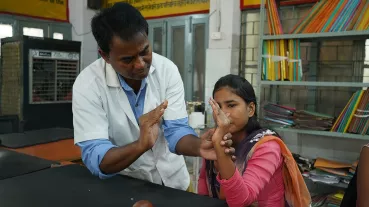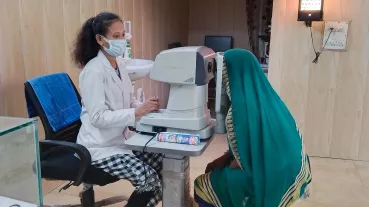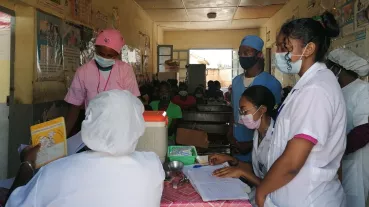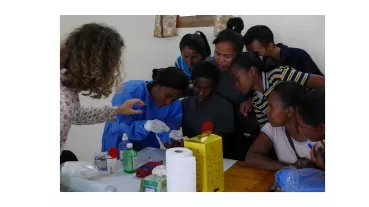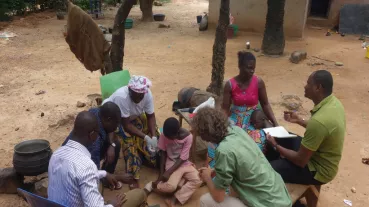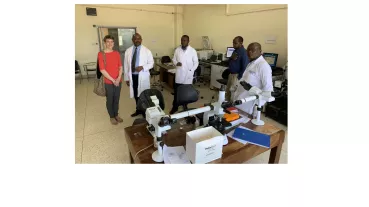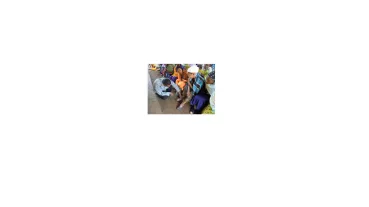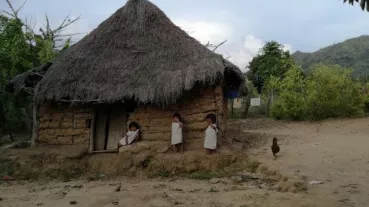Tuberculosis Project in Howrah/ Kolkata
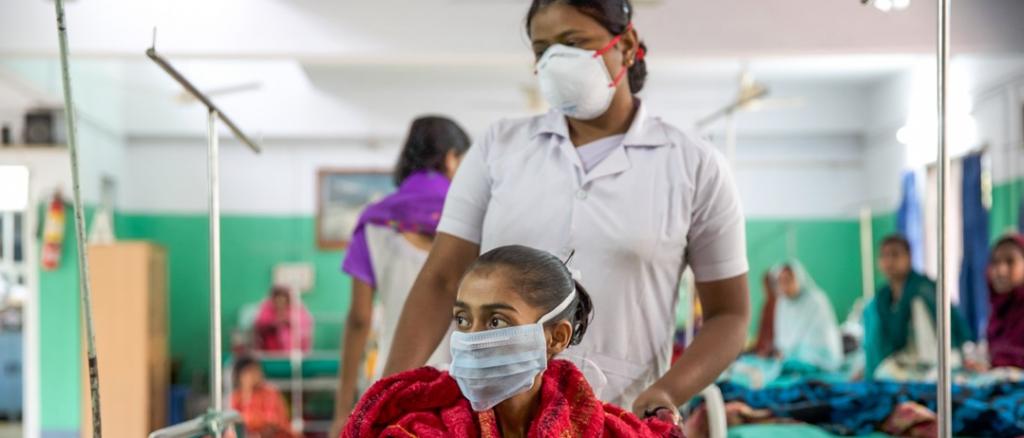
Situation:
Tuberculosis is a major problem in the slums of Indian metropolises. The spread has been exacerbated by the Corona pandemic, as many tuberculosis patients have been unable to access urgently needed treatment in recent months. The slums of Howrah are very densely populated. They are predominantly inhabited by Muslims, who face discrimination under the current government. For the majority of slum dwellers, there are no affordable and qualified medical services. Local healers, often with a low level of knowledge, treat a wide range of infections and chronic diseases among the slum population, including TB. The desolate and extremely cramped living conditions in the slums also contribute to the rapid spread of tuberculosis.
Objectives:
Overall Goal: A contribution has been made to reduce TB incidence and TB mortality in four slum areas (Pilkhana, Tikia para, Kadamtala and P.M. Bustee) in the industrial city of Howrah in West Bengal, India.
Objective: Vulnerable people in the communities of the 4 slum areas have improved access to comprehensive, integrated and high- quality TB care, including active "case finding" and "contact tracing" at the community level, and are able to make adequate use of the services, including through increased knowledge regarding TB.
- Percentage increase in the number of patients diagnosed with TB (St. Thomas).
- Percentage increase of people in the communities of the 4 slum areas who know about the disease TB, name symptoms and know where to get tested.
-
Percentage increase of DOT centers providing high quality, client-friendly TB outreach services.
- Conduct diagnostics for probable TB cases at St. Thomas Home.
- Development and implementation of an extended diagnostic system in the communities (cooperation with social workers, cooperation with laboratories, diagnostic centers)
- Provision of therapy (medication) for diagnosed TB patients in the DOT centers and, if necessary, further treatment in the St. Thomas Home.
- Monitoring/follow-up of TB patients (in the St. Thomas Home as well as in the home environment by social workers and family members)
- Conduct training/education of staff at St. Thomas Home and DOTs.
- Implementation of regular discussion forums
- Review and update existing networks with quacks / local healers and doctors through mapping
- Establish new collaborations with other quacks / local healers and doctors in the area (with financial incentives).
- Conduct training for quacks / local healers and doctors on TB screening.
- Conduct active case finding and contact tracing through cooperation between the project team, quacks / local healers and social workers.
- Conduct training for social workers in sputum fixing.
- Conduct regular meetings/discussion forums with district staff (quarterly)
- Conduct regular discussion forums/conferences with participating alternative practitioners and physicians (semi-annually)
- Conduct community outreach through TB champions (former TB patients).
- Conduct regular awareness activities in schools and in women's and youth groups.
- Conduct information sessions using street stalls.
- Broadcast TV programs
- Broadcast push messages to cell phones of slum dwellers
- Mass screening on World TB Day (depending on the covid situation)
A local fundraising position will be created in year two and three of the grant period to provide sustainable funding for the project. The aim is to develop a sustainable financing plan. In addition, work will be done over the next three years to intensify cooperation with the Indian government so that individual components can possibly be handed over to the government. In addition, some private sector services, such as treatment in private hospitals, will be gradually reduced over the three years and the state health system will be increasingly used. Educational and screening events are being conducted in close cooperation with the government.
- Close cooperation with the local healer who refer suspected TB cases to the project.
- Education and screening events in cooperation with the government.
Here you can find further information.
